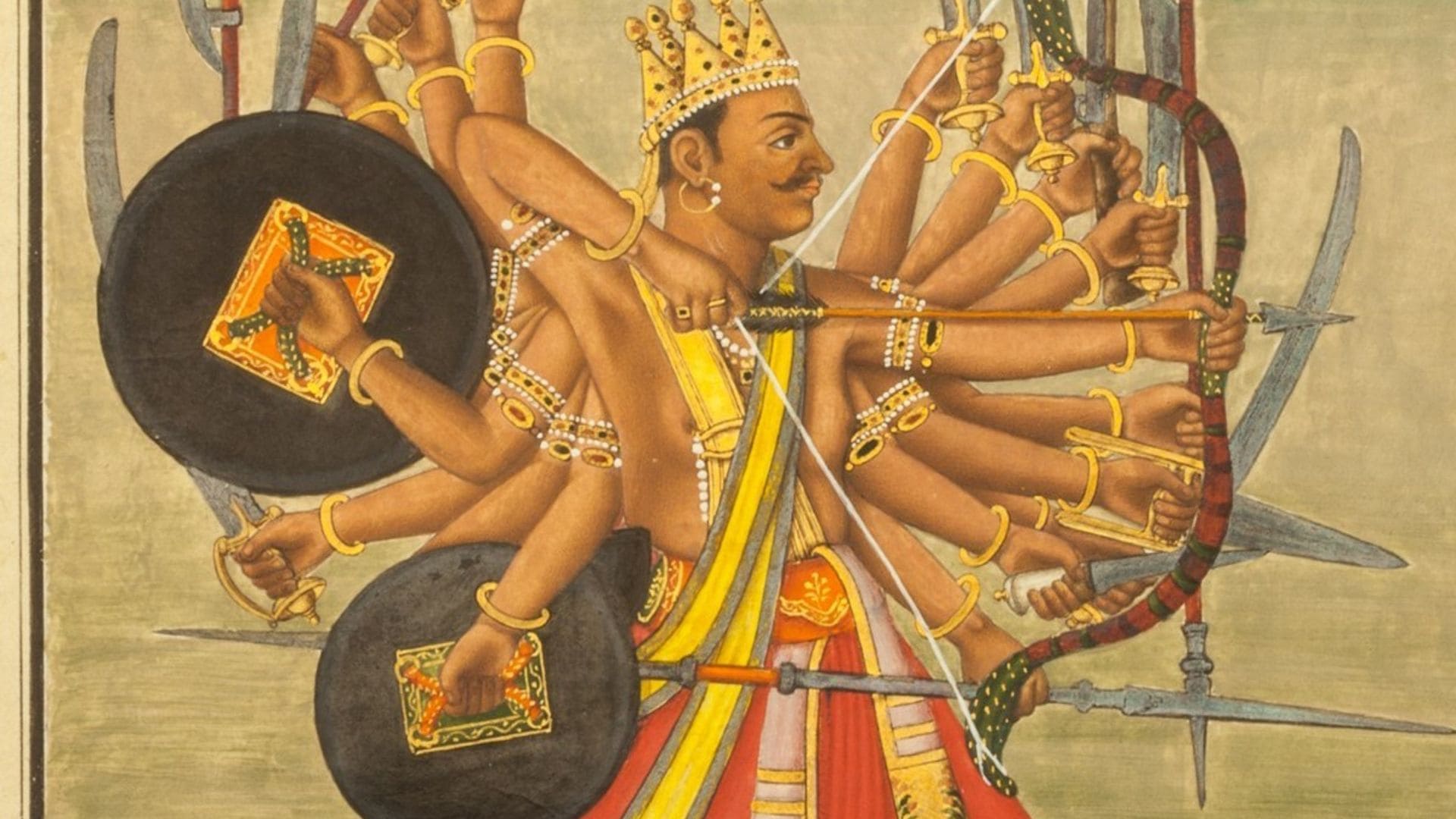
Kartavirya Arjuna: The Legendary King of Mahishmati and His Clash with Parashurama
Kartavirya Arjuna, also known as Sahasrabahu, was not a king of Hastinapur but was instead a legendary ruler of the Haihaya dynasty. He is often depicted in Hindu texts, especially in the Mahabharata and the Puranas, as a powerful and formidable king who ruled over Mahishmati, a kingdom located on the banks of the Narmada River.
Kartavirya Arjuna is famous for his immense strength and his thousand arms, which he supposedly received as a boon from Lord Dattatreya. His reign was marked by great prosperity, and he was considered invincible. Kartavirya Arjuna is best known for his conflict with the sage Parashurama, one of the avatars of Vishnu, who ultimately killed him.
In summary, Kartavirya Arjuna was a king of Mahishmati, not Hastinapur, and is a prominent figure in Hindu mythology due to his strength, power, and the dramatic tale of his clash with Parashurama.
Similar Stories
Explore the extraordinary birth of Dhrishtadyumna from the sacrificial fire, as narrated in the *Mahabharata*. This symbolic tale highlights themes of divine retribution, the power of yajna (sacrificial rituals), and the inevitability of destiny. Witness how King Drupada's desire for vengeance against Guru Drona culminates in the miraculous emergence of a warrior preordained to restore dharma.
Discover the fascinating origins of the Kumbh Mela, rooted in the ancient legend of the Samudra Manthan. This epic tale of the churning of the ocean by gods and demons reveals how the nectar of immortality (Amrit) was obtained and how drops of it sanctified the four sacred cities of Prayagraj, Haridwar, Ujjain, and Nashik. Learn why millions of pilgrims gather to bathe in these holy waters during the Kumbh Mela for spiritual blessings and enlightenment.
Discover the fascinating lineage of Ravana, the ten-headed king of Lanka from the Ramayana. Learn about his ancestors, including Pulastya, the mind-born son of Brahma, his father Vishrava, a master of Vedas, and his connections to the divine and demonic worlds through his parents Vishrava and Kaikesi. Explore the origins of Ravana, Kumbhakarna, Surpanakha, and Vibhishana in this mythological narrative.
Astrology, Mantras, Events, Stories & More.
